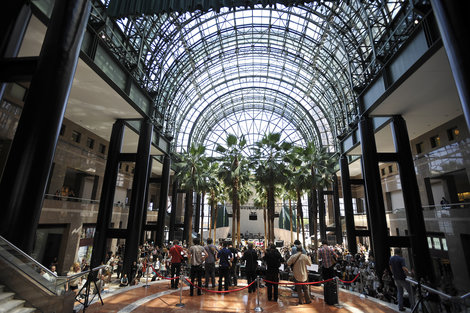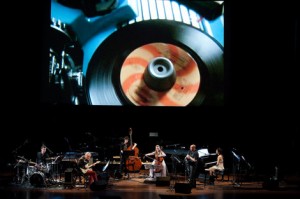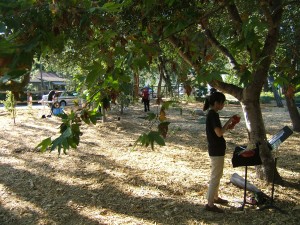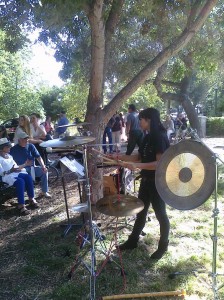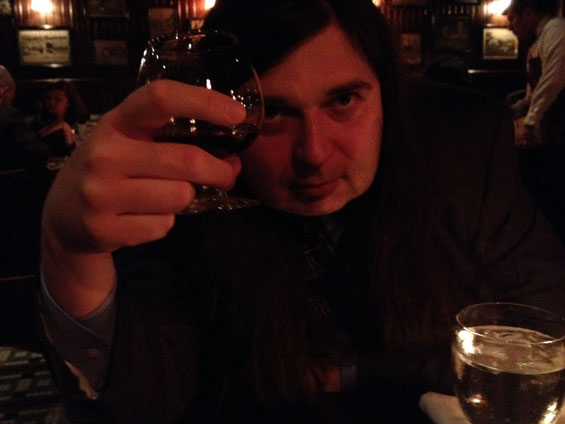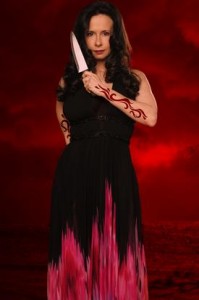
This week, one of the topics being avidly discussed on the blogosphere is a post written on the All Songs Considered blog by NPR intern Emily White (read here). There have been a number of passionate replies to her suggestion that those in her age group simply are not buying music: they’re too accustomed to “appropriating” it. David Lowery (of the band Camper Van Beethoven) provided an in depth and thoughtful response (a must read at the Trichordist here). One can also read Ben Sisario’s article for the NY Times here and Jonathan Coulton’s blog post here.
All caught up? Good.
I won’t go through all of the merits and moral quandaries associated with file-sharing and streaming services. Full disclosure: I use NML regularly in my work (we subscribe at Westminster Choir College) and also have a paid Spotify subscription. While I’m a big proponent of physical media, and also feel that streaming services must work to do a better job to compensate artists, I am pleased that these technological options are available, as they are invaluable references for scholars and music lovers.
Thus, I’m certainly not interested in piling on or, goodness forbid, admonishing Emily White. In some ways, I feel sorry for her: a DJ and station manager who doesn’t have a record collection strikes me as someone who’s missed out on a very fun part of that gig. Instead, let’s zero in on those records. In the various posts on the subject of apathetic interns there is an almost unmentioned other segment of the populace that should be introduced into this conversation about purchasing music: young people who, you know, purchase music.
I support lots of artists by buying their music, often in physical, sometimes esoteric, formats. I feel about LPs the way that former Senator Phil Gramm feels about firearms, about which he famously said, “I have more of ’em than I need and less of ’em than I want.”
But I’m not the only one with this penchant for owning a physical artifact instead of ripping a friend’s CD. Why is it whenever I go to a record store I’m surrounded by people, many approximately Emily White’s age, who are digging through the bins and buying vinyl? New vinyl – nice 180 gram pressings of current albums. That’s a lot of latte money!
Maybe, in the midst of all of the doom and gloom about the decline of CDs as a distribution model, we are overgeneralizing by taking the casual listener as the barometer for future music sales. The casual listener has long “stolen” or, at the very least, freely acquired, music: well before the advent of file sharing and mp3s. Mix tapes, listening to the radio in a restaurant that doesn’t pay royalties, borrowing music from libraries, friends, etc.
Yes, the arguments regarding “fair use” settled some of these issues, but it took lengthy court battles to do so. At the time, most teens remained blithely oblivious of the issues at hand, continuing to dupe their friends’ copies of whatever they couldn’t afford that week at Sam Goody. What’s sad is that Emily seems to fall into this group of casual consumers: one might hope that NPR would attract folks who get the point of supporting those who entertain, educate, and even move them.
Physical product continues to be viable in the digital age, even if it proves to be a more modest stream of revenue than it was for artists during the boom years of the CD era. The physical product that seems to be on the rise at the moment is the LP, with good reason: it’s a very fine artifact. The bigger format helps – you can actually read the liner notes and the artwork can better be appreciated. Many audiophiles (myself included) love ’em.
That said, the industry should continue to explore other modes of distribution, new platforms that will help to keep them in business and recoup at least some of artists’ lost royalties. In no way am I suggesting that streaming media isn’t going to be the prevailing method of experiencing recorded music in the future. From an archival standpoint and one of accessibility, this is an exciting thing indeed. However, I can’t help but think that the lack of engagement with a record collection, except in the digital domain, divests the listening experience of some of its vitality.
Readers: what do you think? The comments section is open for civil discourse.

